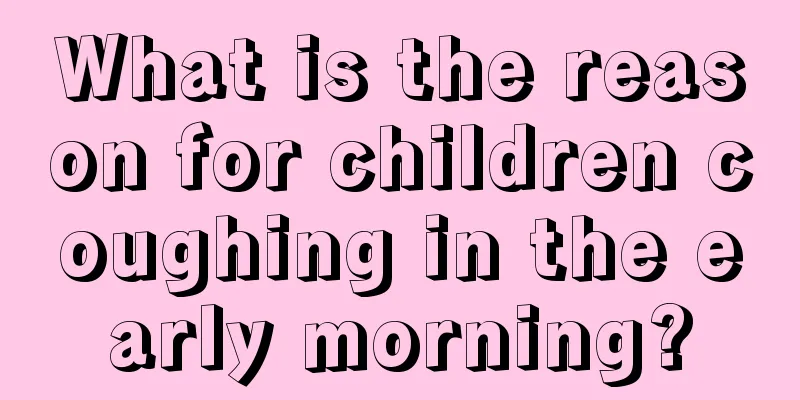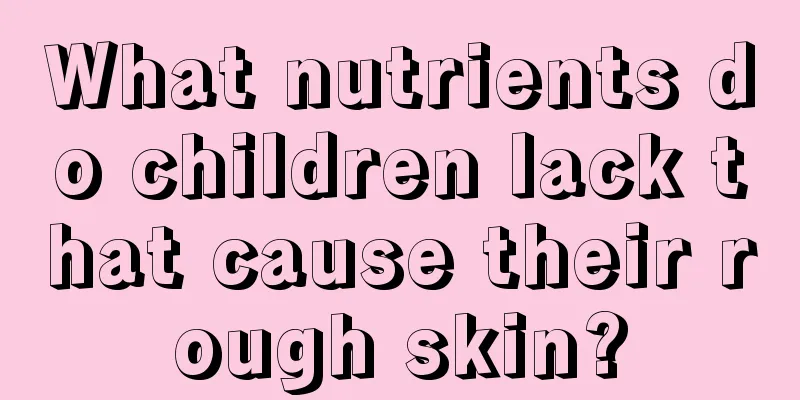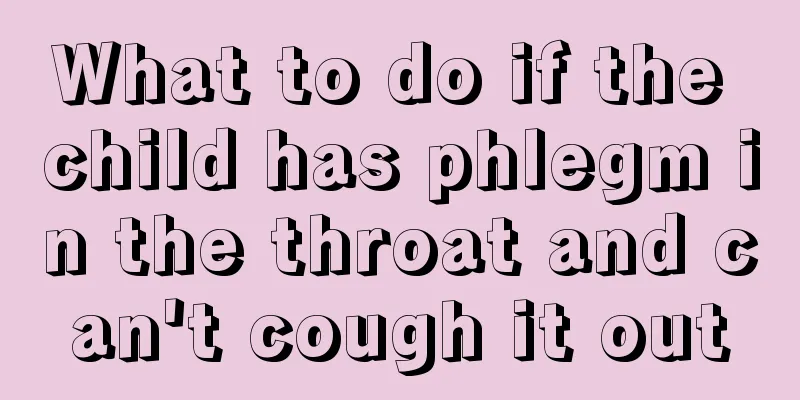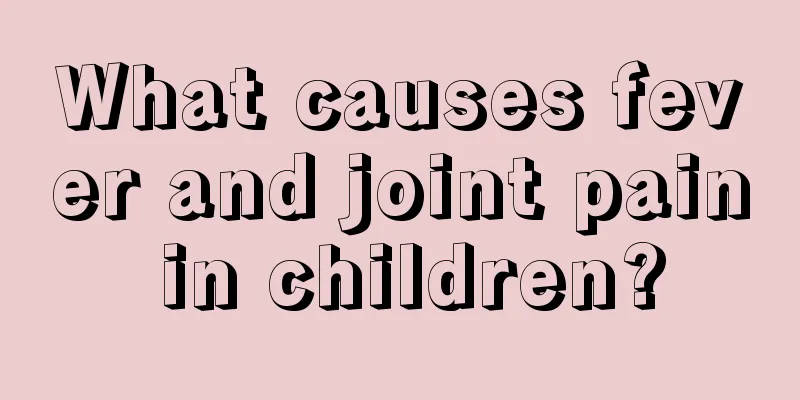What are the diets for children with asthma?
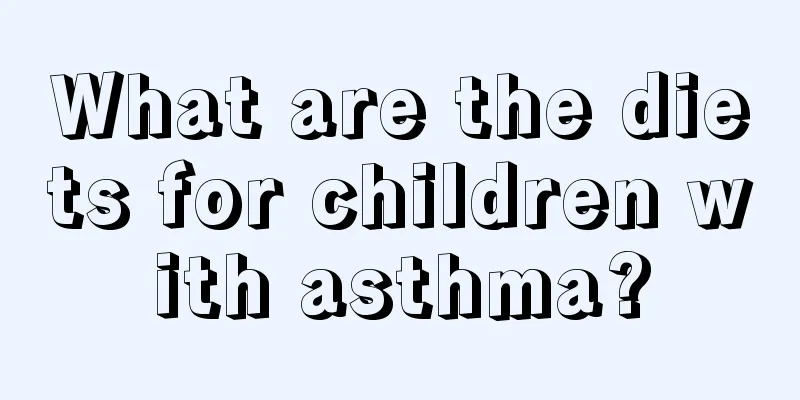
|
Infants and young children have poor resistance and are easily susceptible to colds and coughs. Due to the narrow trachea, coughing can trigger bronchitis, which can cause shortness of breath and asthma attacks in severe cases. In my country, children with asthma are usually treated with intravenous infusion as the main approach. Therefore, the repeated abuse of antibiotics to treat childhood asthma is a common phenomenon. However, due to the poor health of children, they are prone to recurrent attacks, and the long-term abuse of antibiotics is obviously not conducive to their health. So everyone is more concerned about what to pay attention to in daily life and what is the diet for children with asthma? Let me introduce it to you now. First, the three major nutrients, protein, carbohydrates and fat, should be properly matched. Children are often in a state of hypoxia during wheezing attacks, which leads to weakened gastrointestinal digestion and absorption function, loss of appetite, reduced food intake, and affects their normal growth and development. Therefore, children with asthma should supplement with sufficient high-quality protein such as milk, eggs, etc., accounting for about 35% of their nutritional intake. Carbohydrates such as rice and flour are the main source of energy for the body and should account for about 50% of nutritional intake, but overeating of gas-producing foods such as pasta, beans and potatoes should be avoided. Fat should be consumed in small amounts, accounting for about 15% of nutritional intake. Because eating too much fat affects appetite and gastrointestinal digestion and absorption, which is not good for the condition, the main food intake should be vegetable oil. Second, it is advisable to eat more foods rich in vitamins A, B, C, iron and calcium. Vitamin A has the functions of maintaining normal human development and enhancing the body's disease resistance. Vitamins B and C are important substances involved in various metabolisms, and they can increase appetite and promote the absorption of lung inflammation. In addition to promoting growth and development, calcium also has anti-allergic functions. In addition, in order to increase the body's oxygen intake from the hypoxic state of asthma and alleviate tissue hypoxia, compensatory iron deficiency will occur, and supplementation must be increased accordingly. Three things to do: Drink more water. Especially when asthma attacks acutely, the insensible water loss through the respiratory tract increases, children are prone to dehydration, and the sputum in the airways becomes viscous and difficult to expel. Therefore, children with asthma should drink more water. One thing to avoid: cold drinks and carbonated beverages. The airways of children with asthma are in a highly reactive state. Cold stimulation can often induce airway spasms and cause asthma attacks. Carbonated beverages often contain added ingredients such as flavors and pigments, which are harmful to the human body. The carbon dioxide gas they contain is also not good for the lungs. Second taboo: irritating food and gas-producing food. There are spicy foods such as chili, pepper, mustard, curry powder, coffee, etc., which may induce airway spasm, so you should try to avoid eating them. Gas-producing foods include sweet potatoes, potatoes, leeks, soybeans, pasta, etc. They easily produce a large amount of gas, leading to abdominal distension, lifting of the diaphragm, restricting lung ventilation, and inducing asthma. Therefore, children with asthma should try to avoid consuming such foods. The third taboo: eating too sweet or too salty food. Sweet and salty foods can produce phlegm and heat. Overly sweet or salty foods may trigger asthma attacks. Therefore, the diet of children with asthma should be relatively light. I believe everyone already has a corresponding understanding of the diet for children with asthma. In the daily care process, we should also urge children to strengthen physical exercise to enhance the body's resistance. In the winter mornings, children can do some appropriate outdoor exercises, which can improve the respiratory mucosa's ability to adapt to cold air and prevent colds. Children who already have a history of asthma should choose necessary multifunctional treatment and protection measures based on their doctor's advice. |
<<: What should we pay attention to in children's bone development?
>>: What to do if a 3-year-old child coughs at night
Recommend
How can primary school students grow taller quickly?
Primary school students are in the stage of growi...
Primary school students holiday schedule
Every parent has the long-cherished wish that the...
Is hemangioma in children easy to treat?
Children may develop hemangiomas because of defor...
Mild pulmonary regurgitation in children
Now with the development of society, the environm...
What to do if red spots appear on the baby's body
What should I do if red spots appear on my baby’s...
What is the height and weight of a 20-month-old baby?
Mothers can notice that babies change very obviou...
What causes the skin on children's toes to peel?
Children's skin is the most delicate, so we m...
Early symptoms of rabies in children
Some children are very brave since childhood and ...
What are the physical cooling methods for children?
Most children nowadays are only children. Once th...
What causes children to grind their teeth at night?
For children, good sleep is the key to ensuring d...
How to treat stuttering in children in life?
Nowadays, the developmental status of children is...
What is the order of children's deciduous teeth replacement?
Many parents usually pay more attention to their ...
The difference between choking and spitting up milk, prevention is the most important
Choking and spitting up are very common in infanc...
5 common mistakes you make when trying to get your baby to sleep
Adequate sleep is key to healthy growth in childr...
How to treat a child with white tongue coating and cough?
Under normal circumstances, the tongue coating of...


